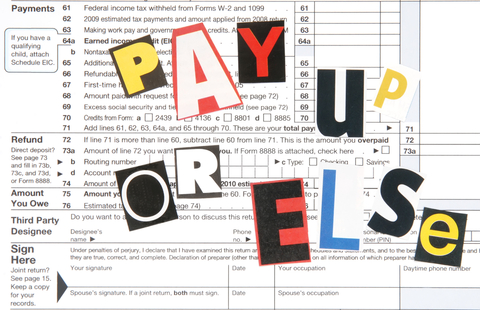 When most of us think "taxes," we think of federal taxes — the IRS, Form 1040, and everyone's favorite holiday, April 15. It's true that the IRS is full of Very Serious People collecting Very Serious Taxes. But we can't forget state and local governments either. They collect their fair share of serious taxes — but they impose some pretty silly tax laws, too. Here are some of our favorites:
When most of us think "taxes," we think of federal taxes — the IRS, Form 1040, and everyone's favorite holiday, April 15. It's true that the IRS is full of Very Serious People collecting Very Serious Taxes. But we can't forget state and local governments either. They collect their fair share of serious taxes — but they impose some pretty silly tax laws, too. Here are some of our favorites:
- California offers a tax exemption for income you receive to settle claims arising out of the Armenian genocide. If you or your ancestors were persecuted by the Ottoman Turkish Empire between 1915 and 1923, your income from that settlement is tax-exempt. But sadly, if the persecution occurred in 1924 or later, your friends in Sacramento want a share.
- California also imposes a 33% tax on fresh fruit bought from vending machines. Apparently, the folks in charge of promoting healthy lifestyles would rather see you buy cookies or potato chips!
- Maryland imposes a $5.00/month "Chesapeake Bay Restoration Fee" on homeowners and businesses to raise funds to improve sewer treatment plants that





